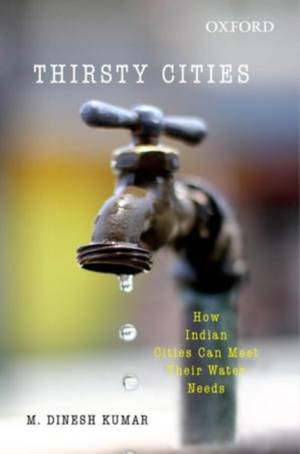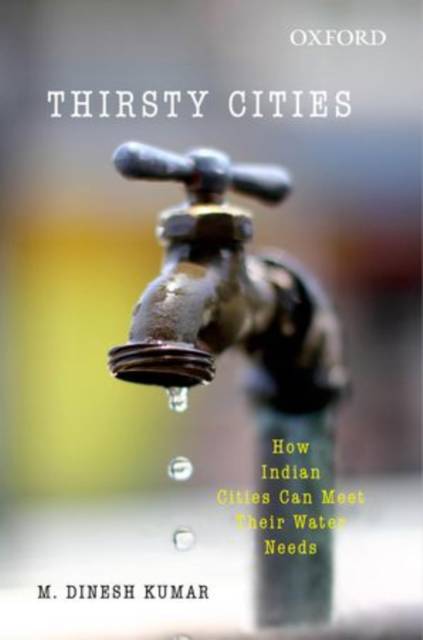
- Afhalen na 1 uur in een winkel met voorraad
- Gratis thuislevering in België vanaf € 30
- Ruim aanbod met 7 miljoen producten
- Afhalen na 1 uur in een winkel met voorraad
- Gratis thuislevering in België vanaf € 30
- Ruim aanbod met 7 miljoen producten
Zoeken
Thirsty Cities
How Indian Cities Can Meet their Water Needs
M Dinesh (, Executive Director, Institute for Resource Analysis
Hardcover
€ 50,45
+ 100 punten
Omschrijving
The book presents all the aspects relevant to sustainable management of water in urban areas along with suggesting a number of solutions from rainwater harvesting to community participation and public-private-partnerships. This book presents an Integrated Urban Water Management (IUWM) framework for India.
Specificaties
Betrokkenen
- Auteur(s):
- Uitgeverij:
Inhoud
- Aantal bladzijden:
- 316
Eigenschappen
- Productcode (EAN):
- 9780198099550
- Verschijningsdatum:
- 2/10/2014
- Uitvoering:
- Hardcover
- Afmetingen:
- 147 mm x 223 mm
- Gewicht:
- 582 g

Alleen bij Standaard Boekhandel
+ 100 punten op je klantenkaart van Standaard Boekhandel
Beoordelingen
We publiceren alleen reviews die voldoen aan de voorwaarden voor reviews. Bekijk onze voorwaarden voor reviews.








